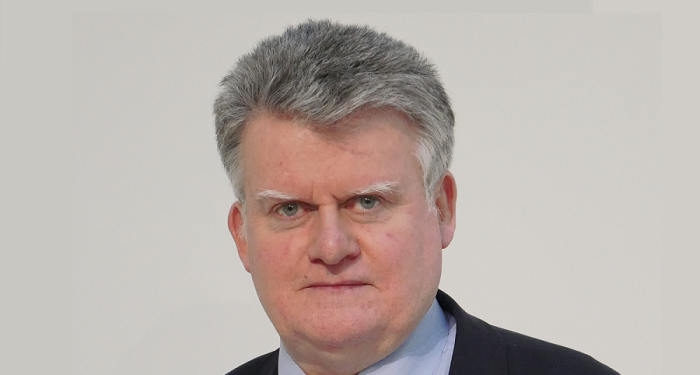Critical illness (CI) insurance and the protection industry are not living up to the full potential that was envisioned by CI founder Dr Marius Barnard, according to Johnny Timpson.
On stage with Barnard’s daughter, Naudene Leisegang, at the 2024 Barnard Awards hosted by Scottish Widows at the Gherkin in London yesterday, Timpson (pictured) said: “I urge the industry to stop talking in terms of added value services and start talking in terms of support services and prevention.”
Timpson spoke with Leisegang on the state of CI, Dr Marius’ legacy and how it could continue to be carried forward.
Timpson also reiterated some of the points made in his remarks in a subsequent LinkedIn post, where he said: “Marius ambition for critical illness insurance and the protection industry is almost but not quite being met.
“For he held that the best type of critical illness and protection claim was remaining healthy and that our industry should champion prevention and leverage the industry’s underwriting knowledge and skills to give our customer pointers on how they could improve their health and reduce their risk of experiencing a life limiting/changing health event.”
Timpson reflected on having the privilege of working with the late Dr Michael Mosley at Scottish Widows who held the same view.
Pivot to prevention
He said: “Swiss Re were championing prevention two decades ago with Road to Health and I for one hold the view that it’s time has come – the more so as our new secretary of state for health and also the Prime Minister are clear that our NHS needs to pivot to prevention.
“I believe that the opportunity for the industry to align with and support this NHS ambition should be seized.
“I urge the industry to stop talking in terms of added value services and start talking in terms of support services and prevention.
“Marius asks of us as ‘financial protection doctors’- as he described us – to make a difference, and improve the financial awareness, understanding, resilience and health of the customers and consumers we serve together with the value, service, support, and outcomes that they experience.”
Greatest achievement
Leisegang recalled the role her father had played, not only in the development of CI, but also in challenging the apartheid regime of South Africa, when she was a protesting student at the University of Johannesburg.
After she was beaten by police during one anti-apartheid demonstration, her father accepted her invitation to address the Student Union, as one of the South African doctors who had successfully performed the world’s first heart transplant operation.
But that anti-apartheid address resulted in losing his job.
“He, never apologised, and in the end they kind of forced him to leave,” Leisegang continued. “And he said it was the most tragic day in his life.
“No-one even said farewell to him or even offered him a cup of tea’ on his way out.
“That was the saddest moment of his life.
“He had done so much in terms of transplantation, and that was the recognition he got.”
But that opened doors for him to enter politics with the main opposition party, she added.
“That’s what took my father to become quite tenacious and to actually have a thick skin.”
After the end of apartheid, and once her father had a private practice, Leisegang said:“he saw the pain his patients went through, because they were getting healed, but they couldn’t work – they needed financial security.”
And that’s when he had the idea that they needed critical illness insurance, for what were then called the dreaded diseases, she continued.
“I think that critical illness was his greatest achievement,” Leisegang said.






